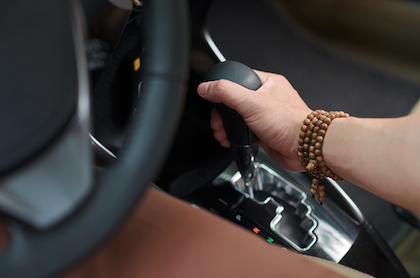INDEPENDENT DEALER
Wichita, KS | (316) 686-1069
OUR BLOG
If your car has ever vibrated while you’re driving, you know how worrisome that can be. To help you deal with that situation, this post by Hartmans Inc in Wichita, KS to learn everything about car vibrations.

When your car starts to vibrate while driving, idling, or braking, it’s more than just an inconvenience—it can be a warning sign. Vibrations can point to a range of issues, from something as simple as unbalanced tires to more serious mechanical problems. Knowing what causes these car vibrations and when to seek professional help can save you money and keep you safe on the road. Read on to learn more!
Don’t let your engine make your car vibrate! Call Hartmans Inc in Wichita, KS at (316) 686-1069 or visit AMSOIL’s online store to maintain your engine properly with the best products for it.
Understanding Car Vibrations
Common Causes of Car Vibrations
There are several reasons why your car might start to shake or vibrate, and the cause often depends on when the vibrations occur—while accelerating, braking, idling, or at high speeds.
1. Tire Issues
One of the most frequent culprits behind car vibrations is tire trouble. If your tires are unbalanced, worn unevenly, or improperly inflated, you might feel vibrations through the steering wheel or floorboards. This is especially noticeable at highway speeds. In some cases, a tire may be damaged or have a separated tread, which can create a thumping sensation and unsafe driving conditions.
2. Wheel Alignment Problems
Misaligned wheels can also lead to vibrations. Alignment issues often occur from hitting potholes, curbs, or driving on rough roads. Besides vibrations, poor alignment can lead to uneven tire wear and reduced fuel efficiency.
3. Brake System Problems
If you feel shaking when braking, the issue is likely related to your brake system. Warped brake rotors are a common cause. Over time, rotors can become uneven due to heat and wear, causing the brake pads to grip inconsistently. This leads to vibrations you can feel in the brake pedal or steering wheel.
4. Engine or Transmission Troubles
Vibrations during idling or when the car is in gear could indicate issues under the hood. Worn or broken engine mounts, dirty fuel injectors, or misfiring spark plugs can all create engine vibrations. If your vehicle shudders while shifting, it might be a sign of transmission trouble.
5. Suspension or Steering Component Wear
Loose or damaged suspension parts—like ball joints, control arms, or tie rods—can cause your vehicle to shake. Similarly, issues in the steering system may lead to vibrations, especially when turning. If vibrations worsen as you steer, suspension or steering parts may be to blame.
If you don’t want your car to vibrate, you need to maintain it perfectly. Use AMSOIL's Signature Series 0W-20 Synthetic Motor Oil, the best synthetic in Wichita, KS, to keep your engine in top shape.
How to Identify When Vibrations Occur
Pinpointing when the vibrations happen can help narrow down the cause:
- At high speeds: Likely a tire or balance issue.
- When braking: Usually related to rotors or brake pads.
- While idling: Could be engine-related, such as mounts or fuel system issues.
- During acceleration: Might point to transmission or drive shaft problems.
- When turning: Could signal suspension or steering component wear.
Keeping track of the symptoms and when they occur can be helpful information to share with your mechanic during a diagnostic.
Why You Shouldn’t Ignore Car Vibrations
While some causes of vibration are relatively minor and inexpensive to fix, others can lead to bigger problems if ignored. For example:
- Worn tires or unbalanced wheels can affect traction and increase your risk of an accident.
- Brake system issues may compromise your ability to stop quickly in an emergency.
- Suspension problems can cause uneven tire wear and make handling unpredictable.
- Ignoring engine or transmission issues can result in costly repairs down the road.
In all cases, car vibrations are your vehicle’s way of telling you something isn’t right.
What to Do If Your Car Starts Vibrating
The best course of action is to schedule an inspection with a trusted auto repair shop. A professional mechanic can identify the source of the vibrations and recommend the necessary repairs. Don’t wait until the shaking gets worse—early diagnosis often means simpler, more affordable fixes.